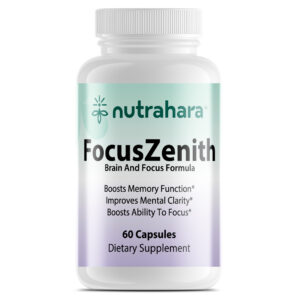
Nutrahara Blog
Nutrahara Blog
Eating Disorders in Women
Introduction: Eating Disorders in Women
Eating disorders in women are a significant mental health concern affecting millions globally. These disorders are more than just unhealthy eating habits—they are complex psychological conditions that impact physical health, emotional well-being, and daily life. Women, in particular, face unique pressures related to body image, societal expectations, and hormonal changes, making them more vulnerable to these disorders. This article delves into the symptoms, causes, and treatment options for eating disorders, offering guidance on how to recognize signs, seek help, and support recovery.
1. Understanding Eating Disorders in Women
1.1 What Are Eating Disorders?
Eating disorders are a group of mental health conditions characterized by disordered eating behaviors, often tied to negative thoughts and emotions about food and body image. These disorders typically arise from a combination of psychological, biological, and environmental factors. The most common types include:
- Anorexia Nervosa: A condition marked by extreme food restriction and an intense fear of gaining weight. Individuals often have a distorted body image, seeing themselves as overweight even when underweight.
- Bulimia Nervosa: Involves cycles of binge eating, followed by purging through vomiting, laxative use, or excessive exercise to “compensate” for overeating.
- Binge Eating Disorder (BED): Characterized by consuming large quantities of food in a short period, often accompanied by feelings of guilt and lack of control, without engaging in purging behaviors.
Understanding these disorders is the first step in identifying and addressing the issue. For more information, please visit womenshealth.gov for this article.
1.2 Why Are Women More Prone to Eating Disorders?
While anyone can develop an eating disorder, women are disproportionately affected due to specific social, cultural, and biological pressures:
- Societal Beauty Standards: Women are often bombarded with media messages glorifying thinness and equating beauty with low body weight.
- Hormonal Changes: Life stages such as menstruation, pregnancy, postpartum, and menopause can trigger shifts in weight and body image, influencing eating habits.
- Trauma and Abuse: Women are statistically more likely to experience events such as sexual abuse or domestic violence, which can lead to disordered eating as a coping mechanism.
Recognizing these factors can help in developing prevention and intervention strategies tailored to women.
2. Recognizing the Signs of Eating Disorders in Women
2.1 Physical Symptoms
Eating disorders often manifest physically, affecting various bodily systems:
- Weight Fluctuations: Sudden and unexplained weight loss or gain can signal an underlying eating disorder.
- Hair, Skin, and Nail Changes: Malnutrition can cause hair thinning, dry skin, and brittle nails.
- Gastrointestinal Problems: Symptoms such as bloating, acid reflux, or constipation are common.
- Fatigue and Weakness: Low caloric intake or purging behaviors can lead to chronic tiredness and fainting spells.
- Menstrual Irregularities: Women with eating disorders often experience irregular periods or complete cessation of menstruation (amenorrhea).
2.2 Emotional and Behavioral Signs
Beyond physical symptoms, eating disorders significantly impact emotional health and behavior:
- Preoccupation with Weight: Excessive focus on body weight, size, and shape often accompanies these conditions.
- Avoidance of Food-Related Situations: Skipping meals, avoiding eating in public, or making excuses to not eat are red flags.
- Obsessive Rituals: Counting calories, measuring food portions, or adhering to rigid diets can indicate disordered eating.
- Mood Swings: Irritability, anxiety, and depression are common emotional responses associated with these disorders.
By being aware of these signs, individuals and their loved ones can intervene early.
3. The Impact of Eating Disorders on Women’s Health
3.1 Physical Health Consequences
Eating disorders can lead to severe health complications if left untreated:
- Cardiovascular Issues: Malnutrition and purging can cause irregular heart rhythms, low blood pressure, and in extreme cases, heart failure.
- Bone Health: A lack of essential nutrients like calcium and vitamin D can result in osteoporosis, increasing the risk of fractures.
- Digestive Problems: Chronic vomiting or laxative use damages the esophagus and intestines, leading to persistent issues like acid reflux and irritable bowel syndrome.
- Reproductive Health Risks: Hormonal imbalances can disrupt fertility, complicating pregnancy or leading to miscarriage.
3.2 Emotional and Mental Health Effects
The emotional toll of eating disorders is profound:
- Increased Risk of Depression: Feelings of worthlessness and self-criticism are exacerbated by disordered eating patterns.
- Social Withdrawal: Many women isolate themselves to hide their behaviors, leading to loneliness.
- Chronic Anxiety: The constant worry about food, weight, or appearance creates relentless mental stress.
4. Causes and Risk Factors for Eating Disorders in Women
4.1 Biological Factors
Certain genetic and neurological factors can predispose women to eating disorders:
- Family History: If a close relative has an eating disorder, the risk is significantly higher.
- Brain Chemistry: Irregularities in neurotransmitters like serotonin can affect appetite and mood regulation.
4.2 Psychological Factors
Psychological challenges often serve as triggers or perpetuating factors:
- Low Self-Esteem: Women who struggle with self-worth are more likely to develop eating disorders.
- Trauma and Stress: Past experiences of abuse, neglect, or bullying contribute to unhealthy coping mechanisms.
4.3 Environmental and Social Factors
External pressures can also play a significant role:
- Cultural Expectations: The media’s portrayal of the “ideal body” fosters unrealistic beauty standards.
- Social Comparisons: Constantly comparing oneself to others, especially on social media, exacerbates body dissatisfaction.
5. Seeking Help for Eating Disorders in Women
5.1 When to Seek Help
It’s crucial to seek help as soon as symptoms become evident. Delaying treatment can lead to worsening physical and psychological health. Indicators for seeking professional help include:
- Persistent weight or health issues.
- Frequent bingeing, purging, or restrictive behaviors.
- Emotional distress, including anxiety or suicidal ideation.
5.2 Treatment Options
Effective treatment often requires a multi-faceted approach:
- Therapy: Cognitive Behavioral Therapy (CBT) focuses on changing disordered thought patterns, while family-based therapy involves loved ones in the recovery process.
- Medical Care: Nutritionists and doctors can address the physical consequences of disordered eating, ensuring nutritional needs are met.
- Medication: In some cases, antidepressants or anti-anxiety medications may be prescribed to manage underlying mental health conditions.
6. 7 Tips for Overcoming Eating Disorders in Women
6.1 Cultivate Self-Acceptance
Focus on building a positive relationship with your body by practicing gratitude for its functionality and strengths.
6.2 Build a Support System
Reach out to trusted friends or family who will listen without judgment and provide encouragement.
6.3 Create Balanced Routines
Shift your mindset to view food and exercise as nourishment and self-care rather than punishment.
6.4 Educate Yourself
Understanding the science behind eating disorders can help demystify and combat negative behaviors.
6.5 Practice Mindfulness
Incorporate practices like journaling, deep breathing, or progressive relaxation to reduce stress and connect with your emotions.
6.6 Set Realistic Goals
Small, actionable steps can make the overwhelming task of recovery feel manageable.
6.7 Seek Professional Help
Engage with a therapist or counselor experienced in eating disorders to guide your recovery journey.
7. Stories of Hope: Testimonials from Women Who Battled Eating Disorders
7.1 Sarah’s Journey to Recovery
“Therapy was a turning point for me. With consistent effort, I’ve redefined my relationship with food and regained control over my life.”
7.2 Mia’s Story of Overcoming Binge Eating
“Joining a support group allowed me to realize I wasn’t alone. Hearing others’ stories gave me the strength to work through my struggles.”
7.3 Emma’s Triumph Over Anorexia
“Anorexia made me feel trapped. But with time, I’ve learned to challenge negative thoughts and embrace my body’s uniqueness.”
7.4 Rachel’s Experience with Emotional Eating
“I discovered healthier outlets for stress, like painting and yoga. Emotional eating no longer controls me.”
7.5 Olivia’s Path to Healing
“Through therapy and self-reflection, I’ve found peace. I now celebrate progress, not perfection.”
8. Natural Approaches to Managing Eating Disorders in Women: Herbs, Vitamins, Exercises, and Lifestyle Changes
While eating disorders in women often require professional medical and psychological treatment, incorporating natural approaches can complement therapy and support overall well-being. Natural treatments, herbs, vitamins, exercises, yoga, lifestyle changes, and supplements play vital roles in restoring physical health, emotional balance, and self-esteem. Here’s how these holistic strategies can make a difference.
8.1. The Role of Natural Treatments in Eating Disorders
Natural treatments focus on healing the body and mind using non-invasive, supportive strategies. These approaches address the underlying imbalances contributing to disordered eating behaviors and can provide relief from symptoms like anxiety, fatigue, and digestive issues.
- Mind-Body Connection: Techniques like yoga and mindfulness improve emotional resilience and promote a healthier relationship with food.
- Nutritional Balance: Restoring nutrient deficiencies through a balanced diet and supplements helps rebuild the body’s health and energy.
- Stress Reduction: Herbs, exercises, and relaxation techniques help manage stress, a common trigger for eating disorders.
8.2. Herbs and Natural Remedies for Eating Disorders
Herbs can offer gentle yet effective support for women recovering from eating disorders. Many herbs are known to alleviate anxiety, improve digestion, and restore hormonal balance.
8.2.1 Adaptogens for Stress Management
Adaptogenic herbs help the body adapt to stress and promote overall resilience:
- Ashwagandha: Known for reducing cortisol levels and promoting emotional balance.
- Rhodiola Rosea: Enhances energy and reduces fatigue, which are common in recovery.
- Holy Basil (Tulsi): Supports mental clarity and reduces anxiety.
8.2.2 Digestive Support Herbs
Eating disorders often lead to digestive issues. These herbs improve gut health and alleviate discomfort:
- Peppermint: Reduces bloating and soothes digestive upset.
- Ginger: Enhances digestion and relieves nausea, especially helpful for women recovering from bulimia.
- Fennel: Supports digestion and reduces gas and bloating.
8.2.3 Nervine Herbs for Emotional Balance
Nervines are herbs that calm the nervous system and promote relaxation:
- Chamomile: Eases anxiety and promotes restful sleep.
- Lemon Balm: Reduces stress and supports mood stabilization.
- Valerian Root: Helps with insomnia and calms the mind.
8.3. Vitamins and Nutritional Supplements
Nutritional deficiencies are common in women with eating disorders, making supplementation essential for recovery.
8.3.1 Essential Vitamins for Recovery
- Vitamin B Complex: Supports energy production and reduces fatigue and stress.
- Vitamin D: Enhances mood and bone health, often compromised by eating disorders.
- Vitamin C: Aids in tissue repair and strengthens the immune system.
8.3.2 Key Minerals
- Magnesium: Promotes relaxation, reduces anxiety, and supports muscle function.
- Zinc: Improves appetite regulation and supports the immune system.
- Iron: Helps combat anemia, which is common in women with restricted diets.
8.3.3 Omega-3 Fatty Acids
Found in fish oil and flaxseed oil, omega-3 fatty acids support brain health, reduce inflammation, and enhance mood.
8.3.4 Probiotics
Probiotics improve gut health, essential for women recovering from digestive complications caused by disordered eating.
8.4. The Benefits of Exercise for Eating Disorder Recovery
Exercise can be a double-edged sword for women recovering from eating disorders. When used responsibly and under guidance, it can:
8.4.1 Improve Mental Health
- Exercise releases endorphins, which boost mood and reduce symptoms of anxiety and depression.
- Activities like walking, swimming, or cycling encourage relaxation and a sense of accomplishment.
8.4.2 Build a Healthy Relationship with Movement
- Focus on movement for enjoyment rather than calorie burning or weight control.
- Low-impact exercises like dancing, tai chi, or Pilates can provide physical benefits without triggering unhealthy behaviors.
8.5. Yoga and Mindfulness Practices
Yoga is a transformative tool for women recovering from eating disorders. It integrates physical movement with mental awareness, promoting healing on multiple levels.
8.5.1 Physical Benefits
- Improves flexibility and muscle strength without being overly strenuous.
- Reduces tension in the body, especially in areas prone to stress, like the neck and shoulders.
8.5.2 Emotional and Mental Benefits
- Yoga encourages mindfulness, helping women tune into their bodies without judgment.
- Breathing exercises like pranayama calm the mind and reduce anxiety.
8.5.3 Specific Yoga Poses
- Child’s Pose (Balasana): Promotes relaxation and a sense of safety.
- Cat-Cow Pose (Marjaryasana-Bitilasana): Enhances flexibility and soothes the nervous system.
- Corpse Pose (Savasana): Encourages deep relaxation and introspection.
8.6. Lifestyle Changes for Long-Term Recovery
Incorporating positive lifestyle changes can reinforce recovery and prevent relapse.
8.6.1 Create a Structured Routine
- Plan regular meal times to normalize eating patterns and prevent bingeing or restriction.
- Prioritize sleep to allow the body and mind to heal.
8.6.2 Surround Yourself with Positivity
- Reduce exposure to media that promotes unrealistic body standards.
- Cultivate relationships with supportive friends and family who uplift and encourage you.
8.6.3 Practice Self-Care
- Engage in activities that bring joy and relaxation, such as reading, painting, or gardening.
- Celebrate small victories in recovery, reinforcing positive behaviors.
8.7. The Role of Supplements in Recovery
Supplements designed for women’s health can address specific nutritional gaps and enhance recovery.
8.7.1 Multivitamins
A high-quality multivitamin ensures adequate intake of essential nutrients during recovery.
8.7.2 Supplements for Brain Health
- L-Theanine: Found in green tea, it promotes relaxation and improves focus.
- GABA: A neurotransmitter supplement that reduces anxiety and calms the nervous system.
8.7.3 Specialized Supplements
Nutrahara’s wellness supplements, like FocusZenith and Ashwagandha with Black Pepper, are excellent choices for women managing stress and supporting mental clarity during recovery.
Conclusion
Eating disorders in women are challenging but surmountable with the right resources and support. If you or someone you know is struggling, remember that help is available. Early intervention can save lives, restore health, and rekindle hope. For more information, visit Nutrahara.com to explore articles and resources dedicated to women’s health and well-being.
Written by the Nutrahara Team
This article was developed by the Nutrahara team of nutrition scientists and naturopaths, who specialize in formulating safe, effective, and science-backed supplements for women’s health. Every ingredient we use is carefully selected to support your body’s unique needs—naturally. Follow us on LinkedIn for expert insights and updates on our latest wellness solutions.












